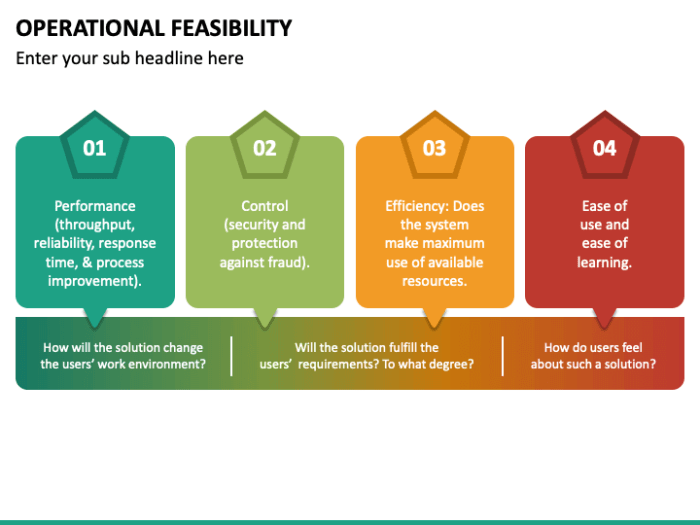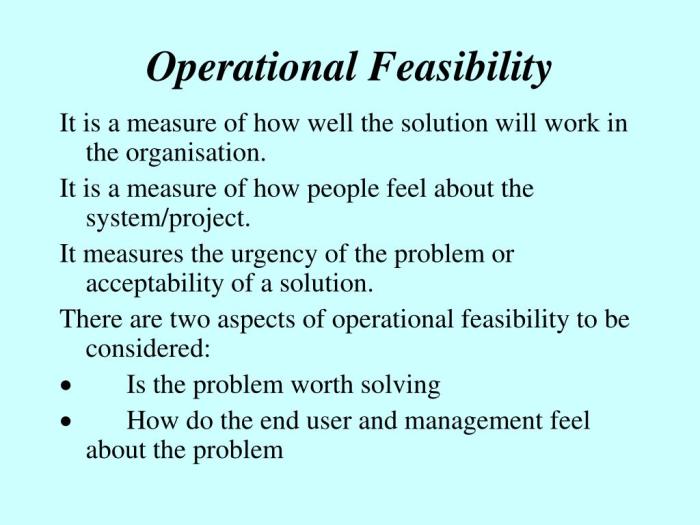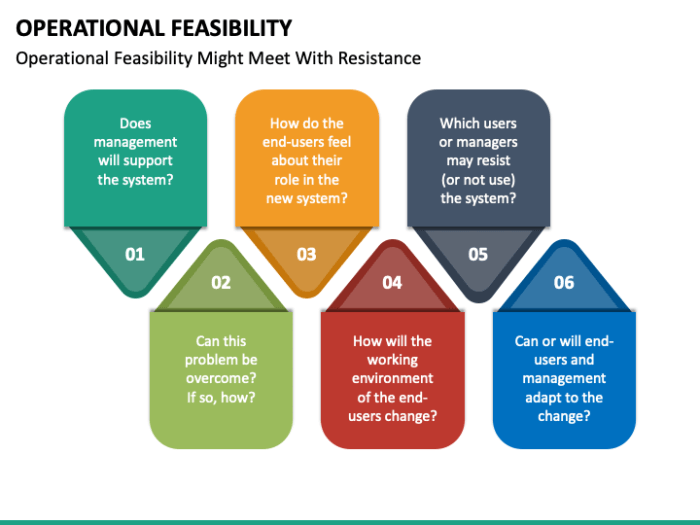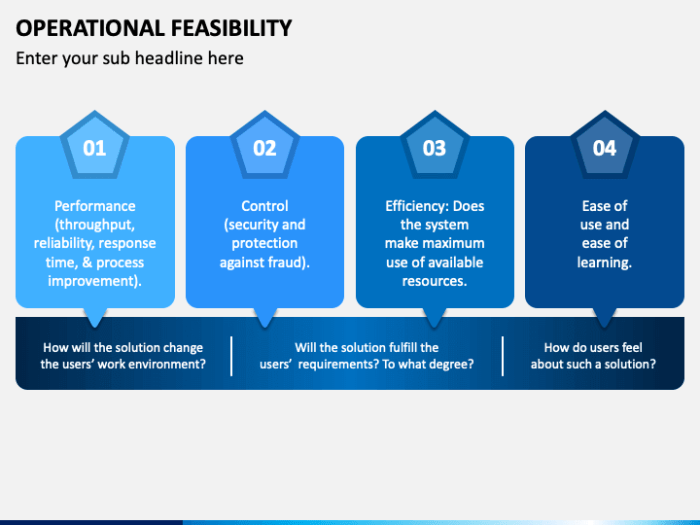Which type of feasibility evaluates hardware software reliability and training – Amongst the various types of feasibility assessments, technical feasibility stands out as the crucial determinant of a project’s viability from a technological standpoint. This evaluation process delves into the intricate details of hardware and software reliability, training requirements, and the overall technical capabilities of an organization.
Technical feasibility encompasses a comprehensive examination of the project’s technical requirements, ensuring that the necessary infrastructure, resources, and expertise are in place for successful implementation. By assessing the reliability of hardware and software components, organizations can mitigate potential risks and ensure the project’s long-term stability and performance.
Operational Feasibility

Operational feasibility evaluates whether a system can be implemented and operated successfully within an organization. It considers factors such as the availability of resources, the organization’s culture, and the impact on existing processes.
Examples of operational feasibility considerations include:
- The availability of skilled personnel to operate the system
- The compatibility of the system with existing hardware and software
- The potential impact on employee morale and productivity
Training plays a crucial role in operational feasibility by ensuring that users have the necessary knowledge and skills to operate the system effectively. Proper training can minimize errors, increase efficiency, and reduce the risk of system failure.
Technical Feasibility

Technical feasibility assesses whether a system can be developed using existing technology and resources. It involves evaluating the hardware, software, and network requirements, as well as the availability of technical expertise.
Methods for evaluating technical feasibility include:
- Reviewing existing technology and capabilities
- Consulting with technical experts
- Conducting a pilot study or prototype development
Hardware and software reliability are critical aspects of technical feasibility. Reliable hardware ensures that the system can operate consistently without hardware failures. Reliable software ensures that the system is free of bugs and errors.
Economic Feasibility: Which Type Of Feasibility Evaluates Hardware Software Reliability And Training

Economic feasibility evaluates the financial viability of a system. It involves estimating the costs and benefits of developing and operating the system, as well as the potential return on investment (ROI).
Cost-benefit analysis is a key tool in economic feasibility. It involves identifying and quantifying the costs and benefits associated with a system, and then comparing them to determine the overall financial viability.
Training costs can significantly impact economic feasibility. The cost of training users, including materials, instructors, and time spent away from work, must be factored into the overall cost of the system.
Schedule Feasibility

Schedule feasibility evaluates whether a system can be developed and implemented within a specified time frame. It involves creating a realistic project schedule that takes into account the availability of resources, the complexity of the system, and potential delays.
Techniques for creating realistic project schedules include:
- Using Gantt charts or PERT diagrams
- Breaking down the project into smaller tasks
- Estimating the time required for each task
Training duration and availability can impact schedule feasibility. The time required to train users must be factored into the overall project schedule, and the availability of trainers and training materials must be taken into account.
General Inquiries
What is the primary focus of technical feasibility?
Technical feasibility primarily assesses the technological aspects of a project, including the availability of necessary resources, infrastructure, and expertise.
How does technical feasibility contribute to project success?
Technical feasibility helps identify potential technical risks and ensures that the project’s technical requirements can be met, increasing the likelihood of successful implementation.
What are the key elements evaluated in technical feasibility?
Technical feasibility evaluates hardware and software reliability, training requirements, technical capabilities, and the availability of necessary resources.